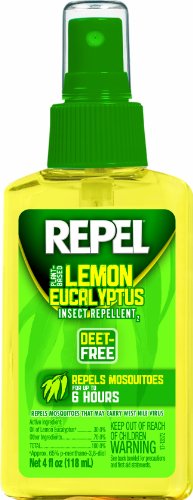Avoiding Mosquito Bites and Zika Virus: Tips for Adults and Kids
/This post contains affiliate links. Please see the Disclosure page for additional information.
My family and I recently returned from a trip to Grenada in the Caribbean. While there were no reported cases of the Zika virus in Grenada (and I pray that is still true), I was a bit nervous about going to the region. My doctor and I chatted about it and he recommended that I look at the CDC website as that is where I would find the most up-to-date info. This post includes an excerpt from the CDC website regarding preventing getting bitten as well as the steps that I took and products that I chose based on the CDC recommendations. Please check the CDC site to ensure that this information is still accurate and do not construe this post as medical advice.
Steps to Prevent Mosquito Bites per CDC Website
When traveling to countries where Zika virus or other viruses spread by mosquitoes are found, take the following steps:
- Wear long-sleeved shirts and long pants.
- Stay in places with air conditioning or that use window and door screens to keep mosquitoes outside.
- Sleep under a mosquito bed net if you are overseas or outside and are not able to protect yourself from mosquito bites.
- Use Environmental Protection Agency (EPA)-registered insect repellents. When used as directed, EPA-registered insect repellents are proven safe and effective, even for pregnant and breast-feeding women.
- Always follow the product label instructions.
- Reapply insect repellent as directed.
- Do not spray repellent on the skin under clothing.
- If you are also using sunscreen, apply sunscreen before applying insect repellent.
- If you have a baby or child:
- Do not use insect repellent on babies younger than 2 months of age.
- Dress your child in clothing that covers arms and legs, or
- Cover crib, stroller, and baby carrier with mosquito netting.
- Do not apply insect repellent onto a child’s hands, eyes, mouth, and cut or irritated skin.
- Adults: Spray insect repellent onto your hands and then apply to a child’s face.
- Treat clothing and gear with permethrin or purchase permethrin-treated items.
- Treated clothing remains protective after multiple washings. See product information to learn how long the protection will last.
- If treating items yourself, follow the product instructions carefully.
- Do NOT use permethrin products directly on skin. They are intended to treat clothing.
Steps that I Took
For the Adults:
I used a DEET product in stick form so that I could apply it without it getting on my hands and thus avoid ingesting it or causing my son to ingest it, I also figured that with a solid stick I would have more control applying it, and I wouldn't need to worry about it spilling in my bag.
For My 14 Month Old:
Even though it is supposed to be safe, I wanted to avoid applying DEET on my son. Because there really weren't many mosquitos in the area (and no reported cases of Zika), on him I used a natural bug spray, citronella stickers and a bracelet around one of his ankles. **UPDATE: AS OF 6/8/16 THE CDC SAYS NOT TO USE PRODUCTS CONTAINING EUCALYPTUS OR PARA-MENTHANE-DIOL ON CHILDREN YOUNGER THAN THREE YEARS OLD AND NOT TO USE ANY SUNSCREEN ON A BABY UNDER TWO MONTHS OLD**
I had extra stickers and bracelets so I used them on myself too for added protection. I've read that these aren't that effective but I'm pretty sure they helped. I did notice that the smell fades more quickly than is indicated on the packaging, so I recommend using a fresh bracelet every day and keeping the old ones attached to your stroller, diaper bag, etc., so you get some benefit.
I also kept watch on my belongings as if a mosquito attaches to your clothes, bag, stroller, etc., you can inadvertently bring them into your room with you - and once they are in it is really hard to get them out.
I used a mosquito net on the stroller and travel crib (this one fits the Mountain Buggy Nano and Qbit and this universal one should fit most strollers and travel cribs).
I was in Grenada with my husband and some other doctors on a medical mission. I had my son nap in the stroller with the net once and one of the doctors brought to my attention that if the netting is against my son's skin the mosquitos can still bite him through the netting. Once he pointed it out it out it made sense but it wasn't obvious to me so I thought I would share this tidbit with you.
I hope that this served as a useful guide to help you prepare for your trip. I'd love to hear where you are going and your suggestions for staying bite free and enjoying your time away!
My little guy had a great time and left all the worrying to me, as long as the star fruit kept coming.
















